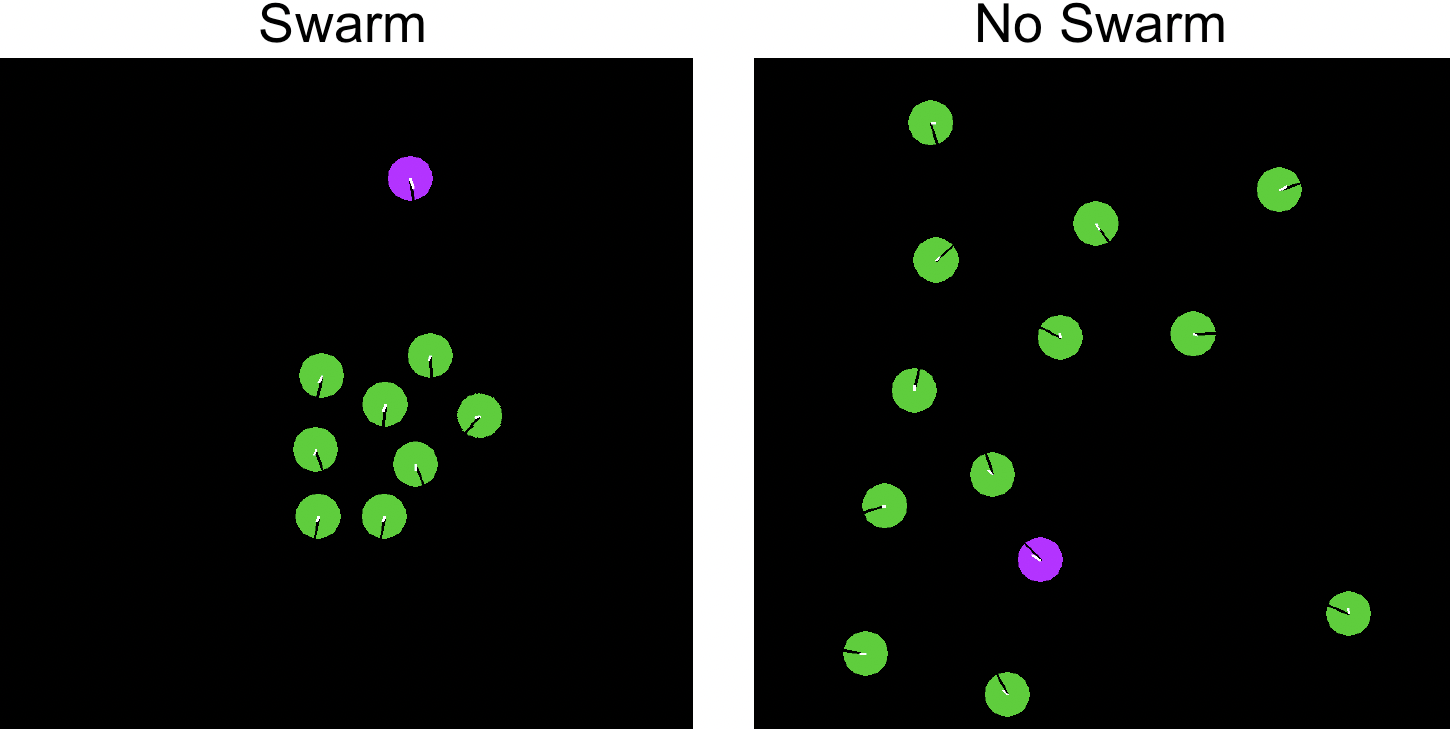This paper applies reinforcement learning to train a predator to hunt multiple prey, which are able to reproduce, in a 2D simulation. It is shown that, using methods of curriculum learning, long-term reward discounting and stacked observations, a reinforcement-learning-based predator can achieve an economic strategy: Only hunt when there is still prey left to reproduce in order to maintain the population. Hence, purely selfish goals are sufficient to motivate a reinforcement learning agent for long-term planning and keeping a certain balance with its environment by not depleting its resources. While a comparably simple reinforcement learning algorithm achieves such behavior in the present scenario, providing a suitable amount of past and predictive information turns out to be crucial for the training success.
@inproceedings{ ritzALIFE20,
author = "Fabian Ritz and Felix Hohnstein and Robert Müller and Thomy Phan and Thomas Gabor and Carsten Hahn and Claudia Linnhoff-Popien",
title = "Towards Ecosystem Management from Greedy Reinforcement Learning in a Predator-Prey Setting",
year = "2020",
abstract = "This paper applies reinforcement learning to train a predator to hunt multiple prey, which are able to reproduce, in a 2D simulation. It is shown that, using methods of curriculum learning, long-term reward discounting and stacked observations, a reinforcement-learning-based predator can achieve an economic strategy: Only hunt when there is still prey left to reproduce in order to maintain the population. Hence, purely selfish goals are sufficient to motivate a reinforcement learning agent for long-term planning and keeping a certain balance with its environment by not depleting its resources. While a comparably simple reinforcement learning algorithm achieves such behavior in the present scenario, providing a suitable amount of past and predictive information turns out to be crucial for the training success.",
url = "https://direct.mit.edu/isal/proceedings/isal2020/518/98475",
eprint = "https://direct.mit.edu/isal/proceedings-pdf/isal2020/32/518/1908444/isal a 00273.pdf",
publisher = "MIT Press Direct",
booktitle = "Conference on Artificial Life",
pages = "518--525",
doi = "https://doi.org/10.1162/isal_a_00273"
}
Related Articles
Relevant Research Areas

